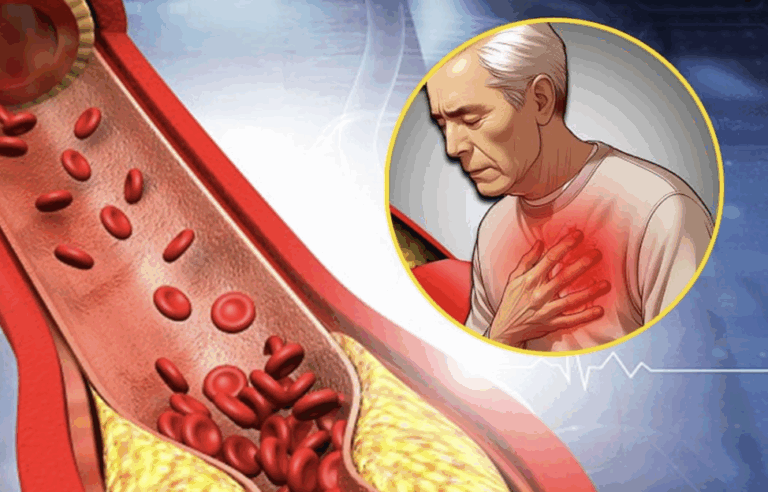Clogged arteries, also known as atherosclerosis, occur when fatty deposits and plaque build up inside the artery walls. This restricts blood flow and increases the risk of heart attack, stroke, and other serious health issues. The condition develops slowly, often without noticeable symptoms at first—but your body may be sending early warning signals. Here are 10 signs that should never be ignored.
1. Chest Pain or Pressure
One of the most common symptoms of blocked arteries is chest discomfort. It may feel like tightness, heaviness, or burning and can spread to the arm, neck, jaw, or back. This is often referred to as angina and usually appears during physical activity or stress.
2. Shortness of Breath
When arteries are narrowed, your heart doesn’t get enough oxygen-rich blood. This can leave you feeling winded even after mild activity—or sometimes while at rest.
3. Dizziness or Lightheadedness
Poor circulation to the brain can trigger dizziness, fainting spells, or feelings of weakness. These may be brief but should be taken seriously.
4. Heart Palpitations
An irregular heartbeat, fluttering sensation, or rapid pulse may be linked to clogged arteries reducing normal blood flow to the heart.
5. Nausea and Cold Sweats
Many people overlook these symptoms, but sudden nausea, unexplained sweating, or a clammy feeling can signal a heart problem connected to blocked arteries.
6. Pain in the Legs or Feet
If plaque builds up in arteries leading to your legs (a condition called peripheral artery disease), you may feel pain, cramping, or heaviness while walking. This pain usually eases with rest.
7. Cold Hands and Feet
Restricted circulation can make your extremities feel unusually cold. In some cases, the skin may look pale or bluish.
8. Numbness or Weakness on One Side
When arteries supplying blood to the brain are narrowed, you may experience numbness, tingling, or weakness—especially on one side of the body. This can be a warning sign of a stroke.
9. Vision Problems
Blocked carotid arteries can limit blood supply to the eyes, leading to blurred vision, sudden vision loss, or dark spots.
10. Slow-Healing Wounds
Poor circulation caused by clogged arteries can make it harder for cuts, sores, or infections (especially on the feet and legs) to heal properly.
Take Action Early
Blocked arteries don’t happen overnight, and they often go unnoticed until it’s too late. If you recognize these symptoms—especially if you have risk factors like high blood pressure, smoking, diabetes, or high cholesterol—consult your doctor right away. Early detection and lifestyle changes can prevent life-threatening complications.
